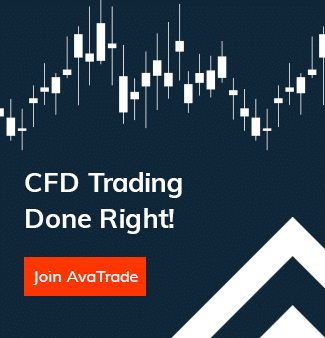Salesforce Stock
| Instrument:SALESFORCE.COM INC |
Trade Salesforce.com Inc. Stocks
Salesforce.com Inc. (NYSE: CRM) often referred to as Salesforce, is a cloud-based software company. Headquarters in San Francisco, CA, USA, it was started during the dot-com book in 1999 by a group of former Oracle employees as a software as a service (SaaS) firm.
The founding team members wrote the original CRM software and began launching it to customers from September through November of 1999. Its core product is a customer relationship management (CRM) suite, and it sells complimentary software focused on application development, analytics, automation, marketing, and customer service.
Friedberg Direct Salesforce.com Inc. Stock Trading Information
- Salesforce Stock Symbol: #SALESFORCE
- Trading Times: Monday – Friday 14:30 – 20:59 GMT
- Country: USA
- Currency: USD
- Exchange: NYSE
- Leverage: Up to
Open an Friedberg Direct account and start trading Salesforce stock CFDs Today!
The Current State of Salesforce
In January 2020 the company has expanded its efforts to include artificial intelligence and Internet of Things (IoT) technologies, as well as social and mobile platforms. Salesforce products have been designed to integrate with third-party platforms and enterprise applications. As a cloud-based product, the services provided by Salesforce are predominantly delivered via internet browsers or through mobile apps.
The Salesforce Customer Success Platform is a portfolio of service offerings providing sales force automation, customer service and support, marketing automation, digital commerce, community management, analytics, application development, IoT integration, collaborative productivity tools and its professional cloud services. The cloud service offerings include:
- Sales Cloud
- Service Cloud
- Marketing Cloud
- Commerce Cloud
- Community Cloud
- Analytics Cloud
- Salesforce Quip
- Salesforce Platform.
Fortune magazine ranked Salesforce as the best company to work for in their 2018 edition of the 100 Best Companies to Work For, and ranked the company second in the 2019 edition of the same rankings.
Salesforce Stocks Price History
Salesforce started trading as a public company on June 23, 2004, with a listing on the New York Stock Exchange. The IPO price of Salesforce stocks was $11, and on the first day of trading the stock rose to $17.20 a share for a one day gain of 56.4%. At the time the IPO was considered a test of a new business model, one which should seem familiar now. It’s the subscription-based model, and after the success of pioneers like Salesforce, nearly every company has tried to incorporate some form of subscription-based sales or services.
Since then, barring the accessional pullback, the stock has continued to trade steadily higher, never suffering an extended downtrend.
Salesforce Stock and the Global Financial Crisis
The first pullback suffered by Salesforce stock was not its own doing, but was in response to the global financial crisis. Shares hit a high of $18.80 (slit-adjusted) in June 2008, but fell to a low of $5.20 a share by November 2008. That drop set the stock up for its next leg higher, which took the stock to a high of $37.81 by December 2010 for a more than 600% return in two years.
The stock was basically flat over the next two years, but by December 2012 it had begun rising again alongside the broader market. By September 2018 Salesforce stocks would be trading at $161.19 a share. Its trading activity became more volatile from that point, and it suffered a few sharp drops over the next 15 months, but as of January 2020 it is trading at an all-time high near $185 a share.
Salesforce Stocks Trading Ideas
Salesforce stocks have spent much of their 15-year history trending higher, so traders interested in having Salesforce in their portfolio may be considering dips before stepping in. After trading sideways for considerable amounts of time, there are two scenarios that could present the opportunity to buy Salesforce stocks on a dip. The first is another acquisition. It was the acquisition of MuleSoft and Tableau that, for example, caused shares to turn sideways back in 2019. Even though Salesforce acquisitions tend to work out in the long-run, investors seem not to like acquisitions and often sell the stock in response. Another big acquisition to be announced could lead the stock to drop.
Another scenario that could cause a dip in shares would be some type of macro-economic crisis. No one wants anything like that, and in any case a macro-economic crisis could create buying opportunities all over the place. For short-term traders pullbacks of a day or two should be enough to create a short-term buying opportunity.
Disclaimer: This is a general analysis and not to be viewed or construed as actual trading advice or a recommendation of any kind and just an example of how a particular instrument could, potentially, be traded.
In Conclusion
Salesforce stocks are just one of thousands of global equities. You can get access to over 600 of the most popular stocks through the new and improved MetaTrader 5 trading platform at Friedberg Direct. This platform not only gives traders the ability to trade stocks like Salesforce, buy also presents the opportunity to trade on global equity indices like the Nasdaq in the U.S., German DAX-30 or the FTSE 100. It gives traders the ability to trade on commodities such as oil and gold, or soft commodities like corn and coffee.
Traders who aren’t sure about their trading skills and strategies can also take advantage of the available demo account at Friedberg Direct. The demo account is free. So why not register at Friedberg Direct and try out the new and improved MetaTrader 5? Trading Salesforce stocks with Friedberg Direct gives you the opportunity not only to go long or short on the stock, but also to test different trading strategies following your dedicated analysis and research.
Open an Friedberg Direct account and start trading Salesforce stock CFDs!
Disclaimer: Please note these are stock CFDs (Contracts for Difference)
When you enter into a CFD trade you don’t buy the actual stock itself but instead agree on a contract with the broker to settle the difference in value between the entry and exit price of the Stock based on the price the stock is trading at on the Exchange it is listed. That means when you trade Stocks CFDs with Friedberg Direct you get a flexibility that stock market rules often make very difficult or even impossible for some.







